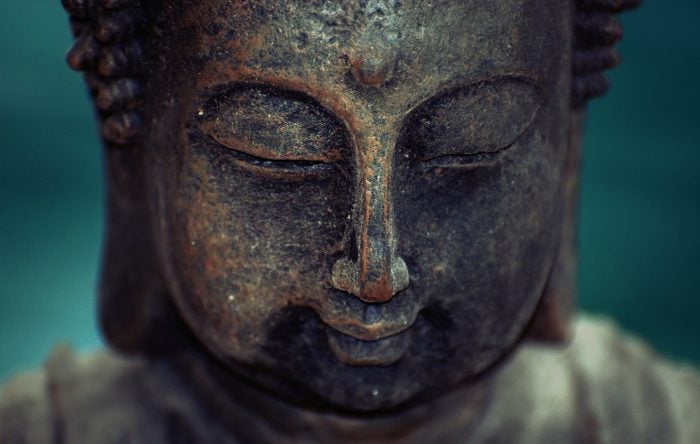Buddhism—a traditional religion of Asia based on the teachings of the Buddha—has been called such in the west since the 1830s.
And from the cultural lens of the west, Buddhism may seem apropos.
The term encompasses the goal and founder of the religion—to achieve the enlightened state of a Buddha, as taught by the Buddha himself.
On the surface, the term seems accurate. But there are two large contextual problems: one is that traditionally Buddhist countries don’t refer to Buddhadharma as Buddhism. And two, as a worldview, the teachings of the Buddha are not at all similar to the cultural lens of the West.
As a student of Tibetan language, I was intrigued when, several months ago, I learned that Tibetans call their traditional religion of Buddhism nang-bstan (ནང་བསྟན་), or internal teachings.
As someone who has studied, contemplated, and meditated on Buddhadharma for a couple of decades, it shifted something in me—in a good way. Internal teachings felt more correct than Buddhism. Largely because from the outset, Buddhadharma aims to reorient ourselves from reifying a solid, permanent, inherently existing external world to an internal understanding of how our minds co-create the world we live in.
Why does it matter, you ask? Well, first let me say that I don’t expect my musings on the word Buddhism will have an impact on the conventionally accepted use of the word, not really. But I hope that by questioning the term itself and by comparing it to what Buddhist cultures call their own religion, we might gain a deeper understanding of what it is we’re actually trying to do here. Because the longer you stay in any movement or religion or dogma, the more you see how people can do it the wrong way. So let’s try to avoid the difficulties and actually practice the teachings.
When applying Buddhism (and I would argue any religion) externally, we have the potential to create big problems.
Instead of taking the teaching personally, we measure others by how they apply the teachings. We compete. Jealousy, zeal, greed, exploitation, and all of the emotional states and negative behaviors we came to overcome pervade the community. We judge. We build defenses. Profound teachings for inner peace and transformation go unrealized.
But shifting that external term Buddhism for one that puts the focus on oneself? I’m not practicing Buddhism, but I’m practicing Internal Teachings—this creates a major shift. It’s all on you, me, each one of us, to realize the path, as the Buddha intended.
No longer in competition with our dharma brothers and sisters, we let go of what others inside and outside our communities think or say we should do. We rely on ourselves, our internal teachings. We build our practice. We see our mind, how it works, and how we build our particular unique experience of samsara or enlightenment. We gain the realizations we all seek. We let go of the world and its worldly dharmas. We actualize the path to Buddhahood.
Buddhadharma is not about the western lens of society agreeing and setting out an externally approved “enlightenment,” “path to Buddhahood,” or even “Buddhist community.”
The teachings of the Buddha are internal teachings.
Maybe it is time we called it such, or at least thought of it this way.
~
References:
Damien Keown, Buddhism: A Very Short Introduction, Oxford University Press


 Share on bsky
Share on bsky





Read 15 comments and reply